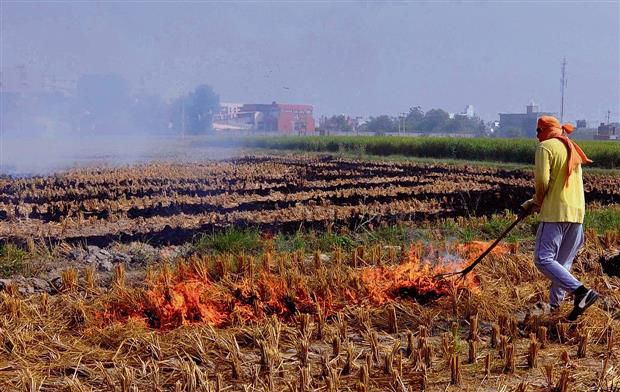Stubble burning leads to spread of weeds, causes harm to field ecology: PAU experts
Manav Mander
Ludhiana, June 24
Stubble burning not only causes air pollution but also affects the next crop. Though farmers plead burning destroys all weeds present in the fields but subsequent watering to douse the flames causes harm to the next crop as it leads to proliferation of weeds due to moisture.
Rice is a major kharif crop in Punjab and is often infested with different type of grass, broad leaf and sedge weeds.
Dr KK Gill, Principal Agrometeorologist at Punjab Agricultural University, said the trend that has been observed is that farmers first burn the stubble and then water the fields to douse the flames. “This is proving very dangerous to the environment as it leads to germination of unwanted weeds which cause much damage to subsequent crop,” she added.
Several traditional practices like tillage, planting, fertilizer application, irrigation, etc, are employed for creating favourable condition for the crop. These practices if employed properly, help in controlling weeds.
A farmer from Jagraon said that burning stubble has been an age-old practice and it is due to the fear of the government that farmers have started pouring water over the fields. “The problem of weeds remains in direct sowing of rice (DSR) as well as weed seeds are ploughed along. The state government incentivises DSR but it is credited after much delay and the yield is also affected with this method due to which not many farmers have shown interest,” he added.
Preparing fields
The field has to be kept weed free. Flowering of weeds should not be allowed. This helps in prevention of build up of weed seed population in the fields. Irrigation channels play an important role is dispersing the weed seeds. It is essential, therefore, to keep irrigation channels clean. Deep ploughing in summer, exposes underground parts like rhizomes and tubers of perennial and obnoxious weeds to the scorching summer sun and kills them. Conventional tillage which includes two to three rounds of ploughing also helps curtail the problem. Running blade harrows also cut weeds. Furthermore, in lowland rice cultivation, puddling operation incorporates the weeds in the soil which then decompose in course of time.









